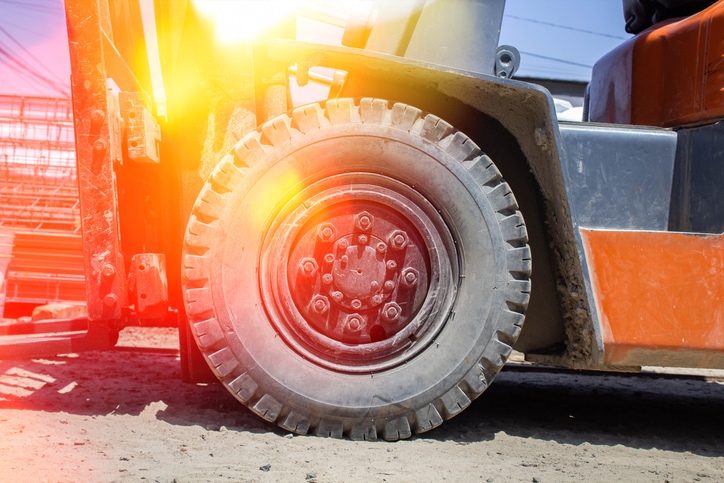
Prolonging the lifespan of your tires not only ensures that your tires are always ready to perform at their best but also allows you to get the most out of your purchase by saving you money in the long run. Some key benefits include the following:
- If your tires last longer, you won’t have to replace them as often, which saves you the cost of buying a new tire.
- Keeping your tires properly maintained improves your vehicle’s fuel efficiency and saves you money on gas.
- Having longer-lasting tires can also help you avoid the costs and inconveniences caused by flat tires, blowouts, and other tire-related issues.
The lifespan of your tires can be affected by several factors, including your driving habits, the type of vehicle you’re driving, and the type of roads you’re driving on, among others. Regardless of your situation, here are five practices you can follow to help your tires last longer.
At Wholesale Industrial Parts, we’re committed to helping businesses succeed by providing a wide variety of material handling parts, wholesale forklift parts, and tires of all sizes. Contact us today via email at info@wiparts.net or call us at (844) 588-8455.
-
Maintain proper tire pressures.
Tires that are underinflated or overinflated are common causes of deterioration. To prevent this from happening, check the pressure in your tires at least once a month. If you’re unsure how to do this, refer to the owner’s manual that came with your vehicle.
Make sure to check both the front and the rear tires – and don’t forget about your spare tire! It’s duly important not to let the pressure get too low or too high. The recommended tire pressure for your vehicle is set by the manufacturer, taking into account factors such as its size, weight, purpose, drivetrain, and more.
-
Check tread depth regularly.
If your tires’ treads are too shallow, your vehicle will lose traction and suffer extended braking times. In extreme cases, worn-out tire treads can cause your vehicle to spin out of control or stop in time, leading to accidents or other dangerous situations. This is why it’s extremely important to check your treads regularly.
You can use a penny test to determine whether or not it’s time to get a replacement. Simply insert a penny into each tire groove. If you see the top of Lincoln’s head, you need new tires. For a more specific frame of reference, if there is less than 1/16th inch of tread on your tires, they should be replaced immediately.
-
Keep an eye on tire alignment.
For maximum vehicle performance, all four wheels must be pointed in the same direction and lined up from front to rear, touching the road at the correct angle. Poor tire alignment leads to uneven tire wear and many problems for your car, from decreased fuel efficiency to compromised drivability.
If you notice any of these things happening while driving, it’s time to have your tires realigned.
- Your vehicle pulls to one side
- You hear clicking or popping noises when driving over bumps or potholes
- The steering wheel vibrates while driving
-
Rotate your tires according to the vehicle’s manual.
Even with your car’s tires properly aligned, they still need to be rotated to ensure optimal wear performance and maintenance. Rotating your tires every 8 to 10 months will help them last longer and keep them balanced.
To rotate your tires is to periodically change the position of each tire on your vehicle, thereby equalizing the wear of each one. Ideally, this means putting an older tire on the back and then using new ones up front or vice versa.
You can try out different rotation patterns, such as the forward cross pattern, the rearward cross pattern, and the X pattern.
The specific pattern used will depend on your vehicle type and the number of tires it has. In general, tire rotation patterns involve moving each tire to a different position on your vehicle so that they all experience different loads and wear patterns. This can ensure that your tires wear evenly and last as long as possible.
-
Keep up to date on scheduled maintenance.
Maintaining your tires is just as important as maintaining the rest of your warehouse equipment. If you don’t keep up with scheduled tire maintenance, it may lead to early wear and tear and, in severe cases, blowouts.
Regular car maintenance is vital because it helps ensure your vehicle is always running smoothly, efficiently, and safely. Examples of standard maintenance practices include changing the oil, checking the tire pressure, and replacing the air filter.
Conclusion
We hope these tips have provided sufficient information on keeping your tires in good shape and extending their lifespan. Check out our other posts for more insight on keeping your warehouse equipment running safely and smoothly.
If you have any questions about our warehouse material handling equipment or want to purchase some tools, feel free to reach out! Contact us today via email at info@wiparts.net or call us at (844) 588-8455.
